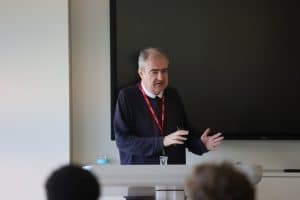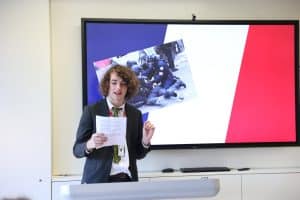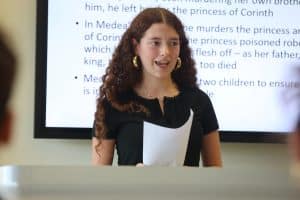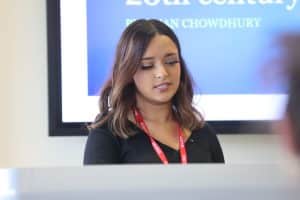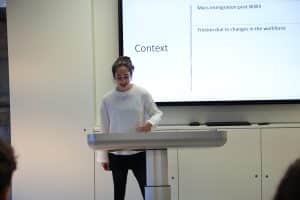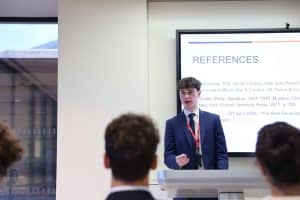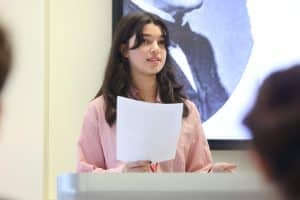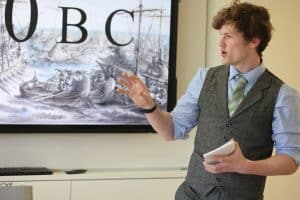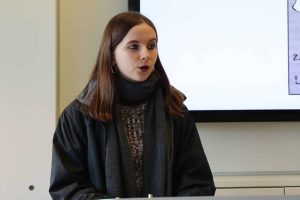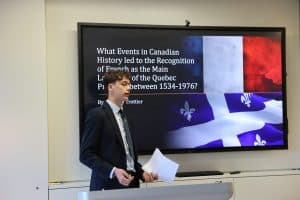Forest School - LAE 3rd Historical Symposium
On today’s top story: we are immensely proud of the creative and academic insights of our 9 students that presented yesterday at the third Forest School – LAE Historical Symposium, an event that already has become a beautiful tradition since 2019 when it was invented by both our departments.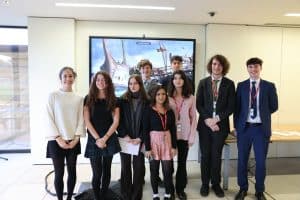
We set this up, with the aim for students at our two schools to showcase their historical knowledge and research beyond the confines of the A-level syllabus. The event saw a success in the surroundings of Forest School and we were delighted to also welcome Dr David Smith from Selwyn College, Cambridge, who spoke to our Sixth Form historians on the subject –
‘Why was Charles I executed’?
Our students chose topics based on their own interest and curiosity. Topics of self-assertion in the face of oppression, of language, nationality, gender and ethnicity are high on the agenda. Very significantly, studies of war and imperialism are more than ever prominent among this year’s contributions, leading us towards new insights and broader perspectives on the ways in which the past can be studied and the present can be understood.
We heard stories of how extremist ideas about power, race and gender have led to fascism, ethnic cleansing and misogyny, from the ancient world until the 20thc century. Our speakers focus on nationalist and feminist ideologies and on colonial and post-colonial violence in relation to the formation of ethnic, national and gendered identities.
Topics on coercion, control and state-sanctioned violence are explored in the contributions on colonial wars in Canada, fascist rule in Czechoslovakia and on the Punic Wars in ancient Rome. We learnt about the long-term effects of imperialism and race in the Rwandan genocide, and about race relations in the 1960’s in the contributions on the politics surrounding immigration in Britain and on policing of Algerian rebels in France. Concerns with ethnicity and nationalism are juxtaposed with a focus on gender and feminism: through a study of representations of women in classical literature, of the struggle for female suffrage in the US, and on developments in medicine and society in relation to sexuality and pregnancy.
All these are serious and profound themes, at times very painful, exposing more than anything how deeply engaged our young historians are with the world and how important they find it to explore the origins of the issues we are dealing with today and face them with knowledge and courage.


